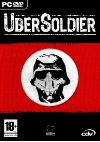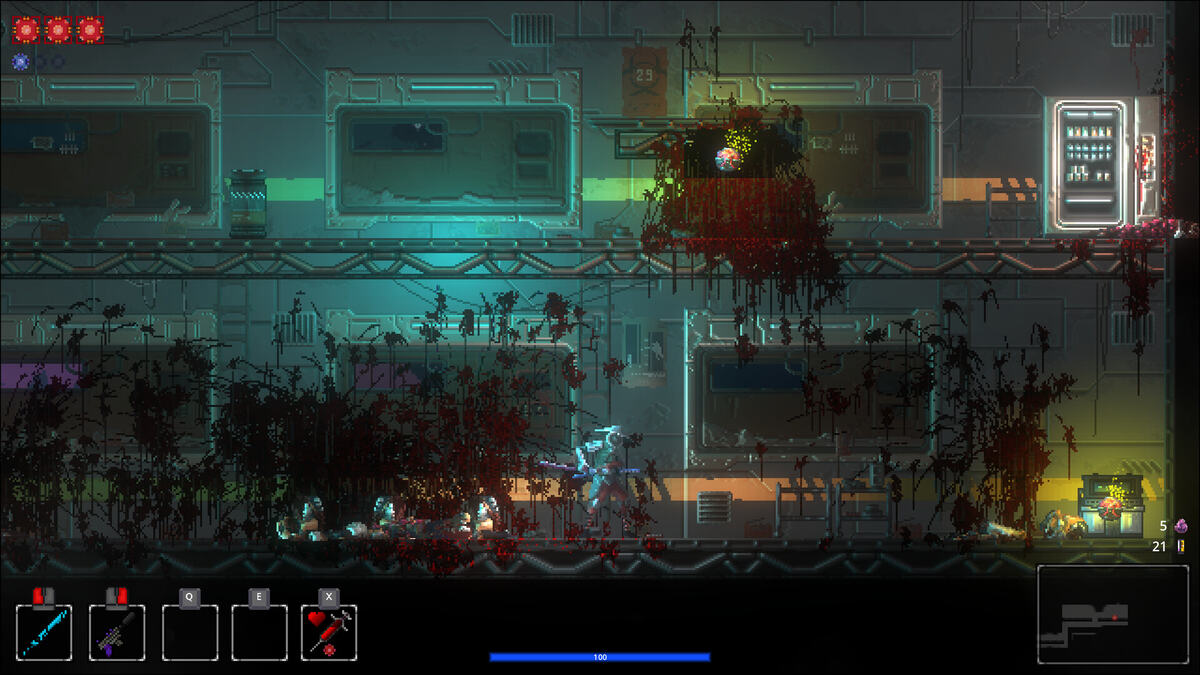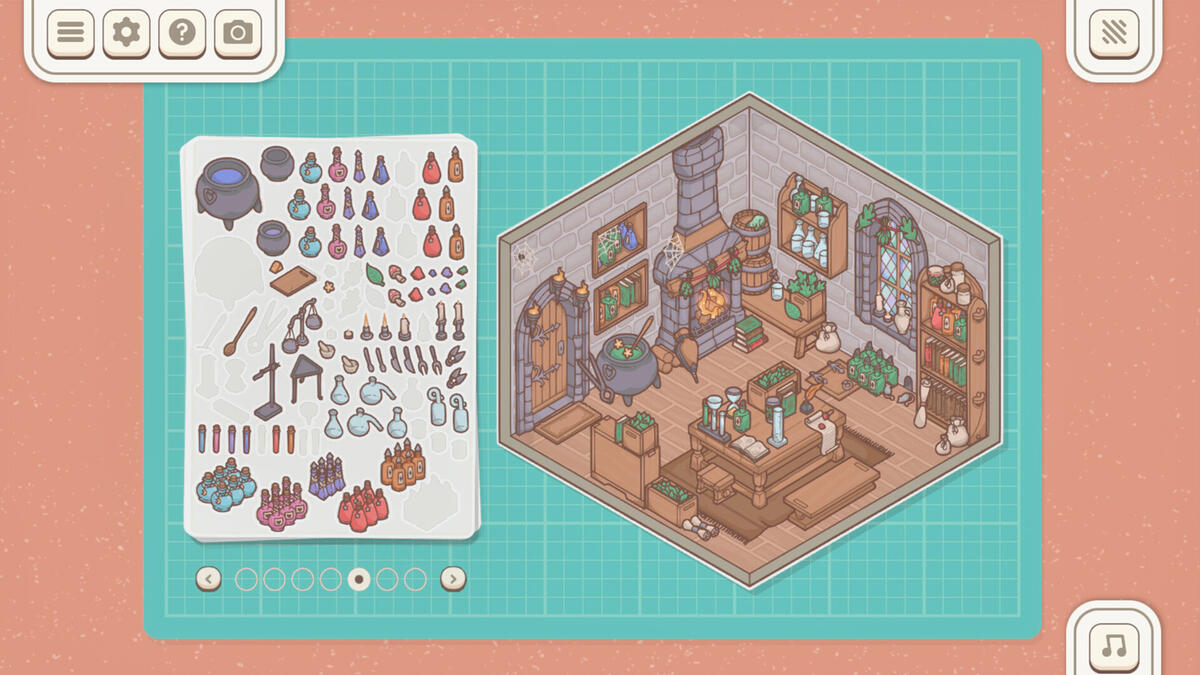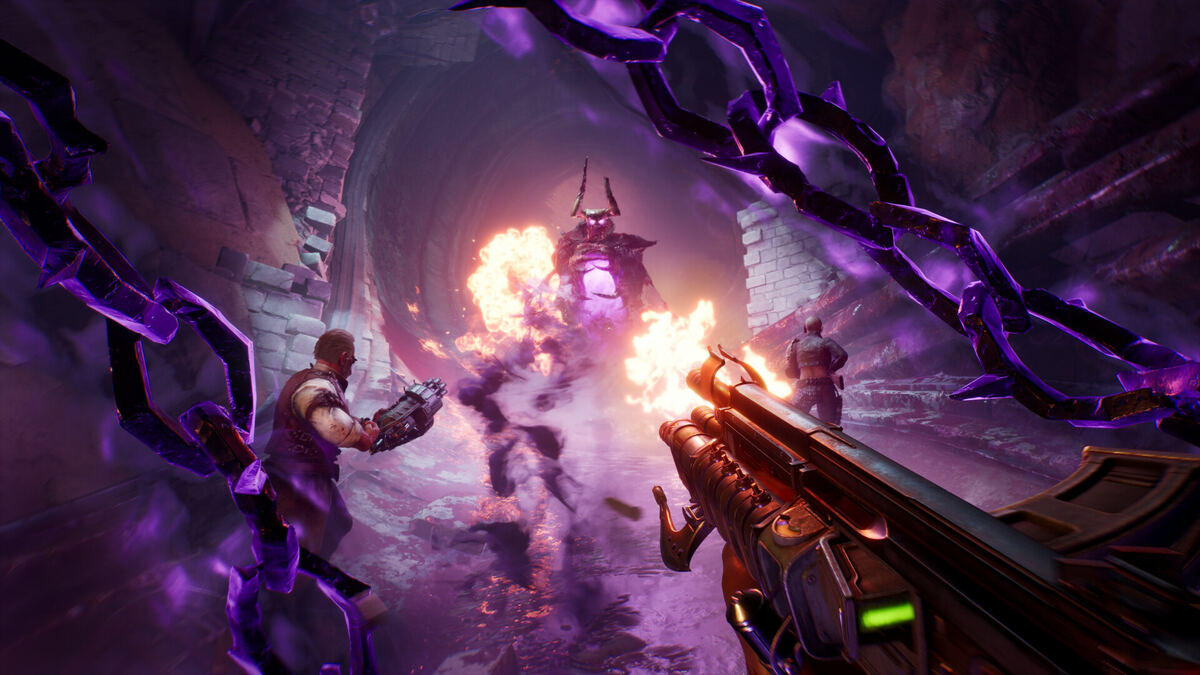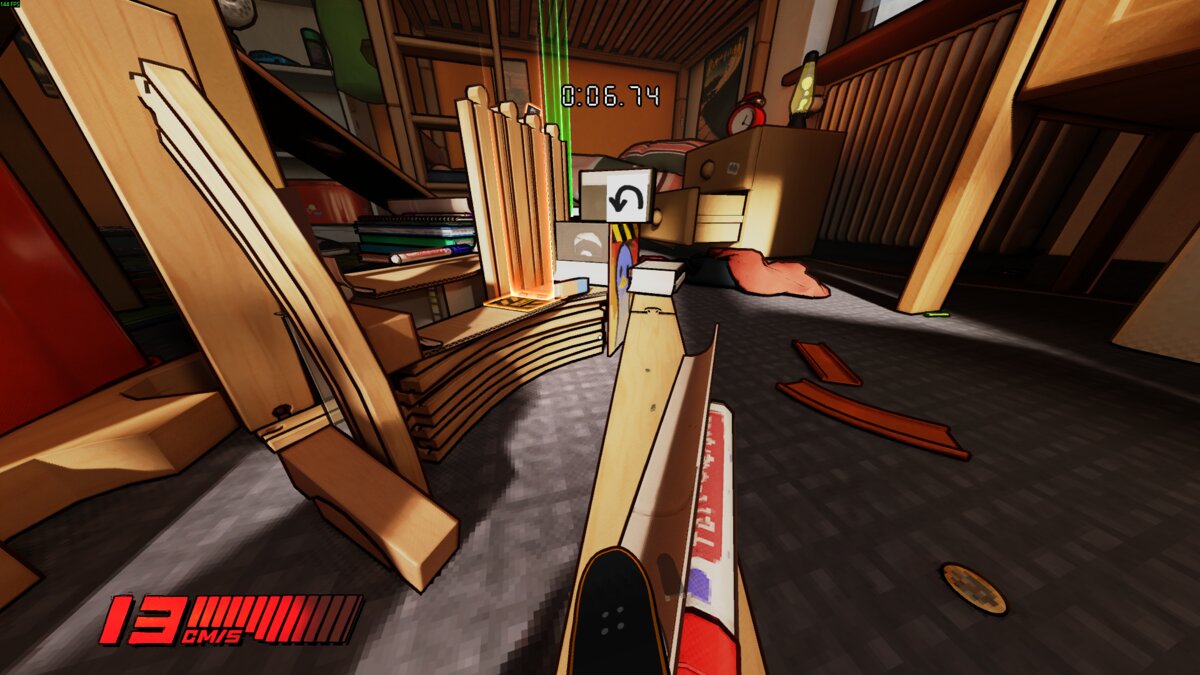You can trust VideoGamer. Our team of gaming experts spend hours testing and reviewing the latest games, to ensure you're reading the most comprehensive guide possible. Rest assured, all imagery and advice is unique and original. Check out how we test and review games here
You’d be forgiven for dismissing UberSoldier as rubbish even before you knew anything about it. The name itself suggests nothing but bargain bin filler, but CDV Entertainment’s first-person shooter might be destined for greater things. Don’t get me wrong, we don’t have a game of Half-Life or Far Cry proportions on our hands, but as a straightforward action-packed shooter, things aren’t looking too bad at all.
The single level made available to play doesn’t do much to suggest a story is high on the development team’s agenda, but you play as Karl Stolz, a German officer killed in action by Partisan forces, brought back from the dead to become a genetically modified soldier – an UberSoldier. Of course, dabbling with death has resulted in parts of Karl’s mind being unlocked, giving him powers no normal man possesses. Obviously unhappy with his new Uber state, you take control of Karl on a mission to bring down the Nazi menace and end these experiments. Uwe Boll is probably preparing a screenplay as you read this.
Despite Karl’s new abilities, the game plays more or less like any other first-person shooter. For the most part enemies are standard soldiers, but equally generic zombie-like (probable failed experiments) guys also make an appearance. Neither enemy type did much to suggest huge amounts of intelligence, but they often arrived in large numbers, more than making up for any AI inadequacies. More dangerous enemies are sure to appear at some point, but there was nothing to get too scared about in this short level.
A combo system of sorts has been implemented that rewards you with bonuses for certain consecutive kills. Take down three enemies in succession with headshots and your temporal shield energy will increase or kill three enemies in a row with melee attacks and your health will be increased. The Temporal shield surrounds you, protecting you from enemy fire. It can also be used to turn bullets back on the enemy, making it particularly useful in situations where you’re surrounded by enemy soldiers. With bullets suspended in the surround force-field you can charge forwards, ploughing through enemies with bullets that they fired themselves.
The demo is pretty limiting in regard to weapons, but the full game is set to include 16 authentic WWII weapons, ranging from the 8 round, 9mm Luger Pistol, to the shoulder-launched Panzerschreck anti-tank rocket launcher. Actual damage these weapons can inflict on the environment is limited, but cars will explode, windows will shatter and other scenery objects will be destroyed.
Mid-way through the level you join some friendly forces and help them take on the enemy soldiers, but this has very little affect on the gameplay. They fight with you, but you don’t have any control over them. UberSoldier is clearly as far from being a sim as it can be, but some team-based combat in certain sections would have spiced up the gameplay somewhat, particularly in open environments where enemies are coming at you from all sides.
As with almost every first-person shooter released nowadays, physics are used to give life to the environments and the enemies. Throughout the level were gas cylinders (begging to be shot) that would explode or shoot across the room, and enemies reacted well to gun-fire, limping if shot in the leg. Explosions will send any environment objects flying and smoke will be thrown into the air. Every object that an enemy is carrying acts independently to the character model, so in an explosion guns, helmets, ammo clips and more all go flying, creating an impressive effect.
On the whole UberSoldier is a smart looking game. It lacks the polish of the big name shooters, but textures are sharp and the game engine runs well with all effects maxed out. The Temporal shield looks particularly good, with a blue glow and some impressive transparency effects. While not overly gory, there’s plenty of blood too, with splatter being seen across the walls of the areas where a battle has taken place. The audio doesn’t disappoint much either, with the guns in particular sounding extremely loud and meaty.
With only one short level to play through it’s hard to get a good feeling for the game, but UberSoldier has certainly exceeded my expectations so far. Everything seems to be in place to create a fun, if rather simple, first-person shooter. If the physics can be used to good effect to create some unique situations, a generic shooter could be elevated somewhat from merely average to being very good. UberSoldier will be released in the UK on PC DVD on March 31.

